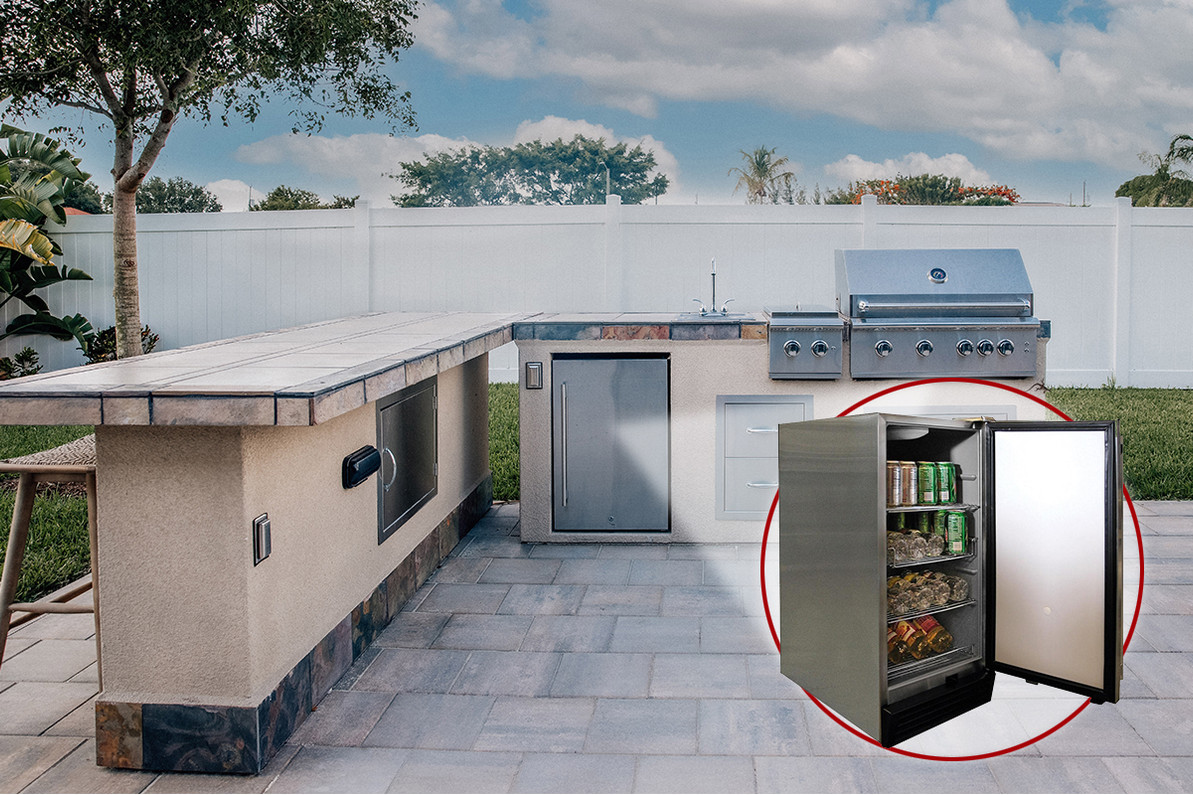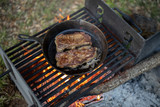6 Factors to Consider When Buying an Outdoor Refrigerator
We can all agree that a refrigerator is a must-have appliance in any outdoor kitchen. It’s perfect for providing guests convenient access for food and drinks, and you’ll no longer have to purchase bags of ice or lug around large and sometimes unsightly coolers.
However, when buying an outdoor refrigerator for your barbecue island, there are several factors to consider.
Outdoor vs. Indoor Refrigeration
Yes, there is a difference between outdoor and indoor refrigerators. Indoor refrigerators are built to operate specifically in weather-controlled environments. The inside of your home is not generally subjected to major temperature fluctuations, nor is there as much environmental impacts, such as dirt, insects, snow, or rain, to contend with. Using an indoor refrigerator outdoors may keep the unit from operating efficiently and may void the manufacturer’s warranty.
UL-Certified Refrigeration
When looking for a refrigerator for your outdoor kitchen, make sure the unit is Underwriters Laboratory (UL) certified. Underwriters Laboratory is a third-party certification entity that rates several factors for safety usage in outdoor conditions.
First and foremost, is the refrigerator protected from the elements? Outdoor refrigerators have additional insulation and weatherproofing to combat extreme, and often fluctuating, weather conditions, corrosion, and gnawing or nesting rodents and insects. Sealed bearings and filters are also a feature of outdoor refrigerators that keep debris away from the motor. Both reduce the stress on the compressor while it keeps the refrigerator at the preferred temperature.
Ultimately, UL-certified refrigerators have been certified to hold perishable items. Other certifications that indicate the refrigerator has passed necessary safety inspections are ETL and CSA certifications.
Weatherproofing Explained
Weatherproofing in outdoor refrigerators protects electrical components from water and other harmful elements that could lead to electrocution. This does not mean it protects the refrigerator from extreme weather conditions, such as hailstorms, sleet, and intense heat or humidity. Nor does it protect the refrigerator from operating in extreme cold below 40 degrees.
Free-standing vs Built-in Ventilation
Ventilation of your refrigerator is extremely important. If you are going to build your refrigerator into your barbecue island, you will need to make sure that the unit has front-end ventilation.
Without front-end ventilation, the unit will need reasonable space on all sides of the refrigerator to vent properly.
Additional Factors
Maintaining your Outdoor Refrigerator for long-term excellence!
Once you’ve purchased and installed your outdoor refirigerator, you want it to last for years to come. Here are a few guidelines for keeping your unit running efficiently.
Recent Posts
-
2024 Barbecue Trends Every Grill Master Needs to Know
No matter what time of year it is, it’s never too early (or too late) to talk trends. After all, whe …Feb 22, 2024 -
Cook With Iron—Advantages and Disadvantages of Using Cast Iron on the Grill
Many wouldn’t think of ever using cast iron cookware on a grill. Isn’t capturing an open flame th …Feb 09, 2024 -
How to use smoking chips on a grill.
It's hard to beat the taste that grilling imparts upon meat, yet smoking chips take that flavor …Feb 08, 2024



